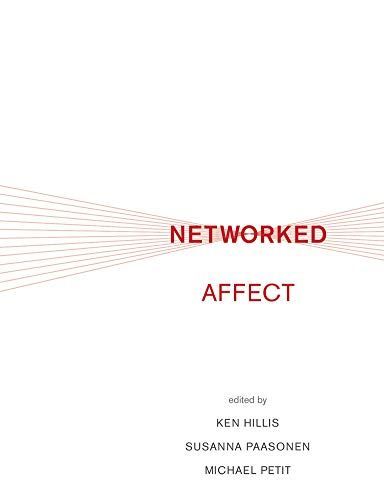
Networked Affect
Investigations of affective experiences that emerge in online settings that range from Facebook discussion forums to “smart” classrooms. Our encounters with websites, avatars, videos, mobile apps, discussion forums, GIFs, and nonhuman intelligent agents allow us to experience sensations of connectivity, interest, desire, and attachment—as well as detachment, boredom, fear, and shame. Some affective online encounters may arouse complex, contradictory feelings that resist dualistic distinctions. In this book, leading scholars examine the fluctuating and altering dynamics of affect that give shape to online connections and disconnections. Doing so, they tie issues of circulation and connectivity to theorizations of networked affect. Their diverse investigations—considering subjects that range from online sexual dynamics to the liveliness of computer code—demonstrate the value of affect theories for Internet studies. The contributors investigate networked affect in terms of intensity, sensation, and value. They explore online intensities that range from Tumblr practices in LGBTQ communities to visceral reactions to animated avatars; examine the affective materiality of software in such platforms as steampunk culture and nonprofit altporn; and analyze the ascription of value to online activities including the GTD (“getting things done”) movement and the accumulation of personal digital materials. Contributors James Ash, Alex Cho, Jodi Dean, Melissa Gregg, Ken Hillis, Kylie Jarrett, Tero Karppi, Stephen Maddison, Susanna Paasonen, Jussi Parikka, Michael Petit, Jennifer Pybus, Jenny Sundén, Veronika Tzankova